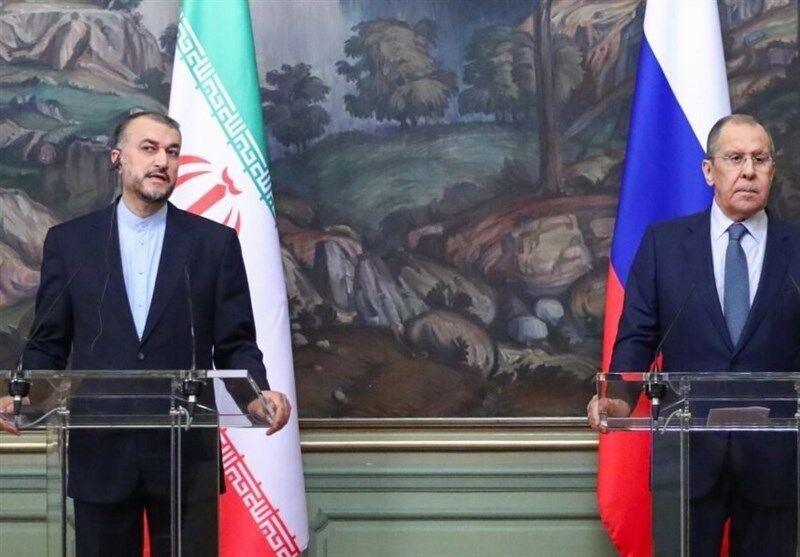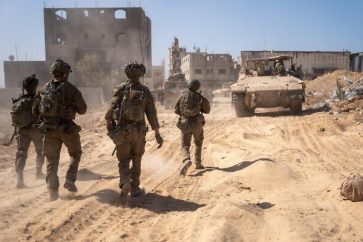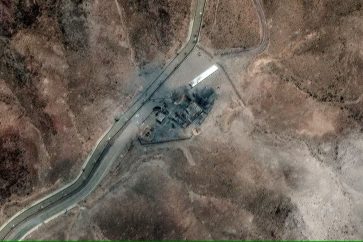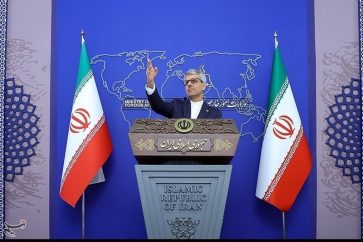Iran’s Minister of Foreign Affairs Hussein Amirabdollahian has ruled out any sort of efforts to change geopolitics in the Caucasus region, urging Armenia and the Republic of Azerbaijan to find a political solution.
Amirabdollahian made the remark in a joint press conference with his Russian counterpart Sergei Lavrov in Moscow on Wednesday.
The Iranian diplomat further said that the two foreign ministers focused on the ongoing developments in the Caucasus region, noting that they do not see the continuation of tension in the region as fruitful for any parties, including Armenia and Azerbaijan, but Russia and Iran believe that security would be beneficial for regional peace and stability, adding that since certain efforts to change the geopolitics of the region can complicate the current circumstances more than ever, the 3+3 mechanism for resolving Caucasus issues and other existing mechanisms should be applied away from resorting to using force.
The next round of talks to pursue the 3+3 mechanism can be held in Tehran, the top diplomat said, expressing hope that the result of the coming meeting and other efforts result in resolving the issues peacefully.
On economic and trade ties between Russia and Iran, he underscored that the mutual trade exchanges improved over the past one and half years and that the bilateral trade volume increased by more than 3.5 times.
He also noted that the two foreign ministers discussed the accession of the Islamic Republic to the Shanghai Cooperation Organization (SCO), including the approval of 49 documents by the Iranian Parliament for Iran’s membership in the next SCO summit.
As to the relationship between Turkiye and Syria, Amirabdollahian said that he discussed the issue in his latest trip to Ankara as well as during his today’s meeting with FM Lavrov and that the deputy foreign ministers of Turkiye, Syria, Russia, and Iran will hold a meeting next week to approach viewpoints of Ankara and Damascus.
Reacting to the United States’ claims on recent clashes in Syria, the foreign minister stated that the Americans always level unfounded accusations on attacks by the so-called groups, which they claim, are affiliated to Iran, or accuse the Islamic Republic of conducting drone strikes, but they do not propose any document to prove their allegations.
Asked about Chinese President Xi Jinping’s proposal for Ukraine, he said that the Raisi administration pursues the look to Asia policy, so Iran backs the Chinese president’s idea on global peace and security, and Tehran welcomes his idea on Ukraine as well. The Iranian FM also warned that the West’s arming of Ukraine will complicate the war between Russia and Ukraine.
Touching upon the restoration of ties between Riyadh and Tehran, Amirabdollahian noted that he would meet with his Saudi counterpart in the near future, adding that certain disagreements were natural, but the differences would not hinder the restoration of the relationship as well as the re-opening of embassies of both countries.
The Iranian foreign minister expressed hope to meet his Russian counterpart in Tehran in the near future to sign the long-term Iran-Russia Comprehensive Cooperation Agreement.
For his part, Lavrov said that despite the US and its puppets’ illegal sanctions, Russia’s trade cooperation with Iran is enhancing.
The Joint Comprehensive Plan of Action (JCPOA) has no alternative, Lavrov said, adding that Russia wants to revive the JCPOA as quickly as possible and the world is looking forward to the US returning to its commitments, and sanctions against Iran should be lifted.
He underlined that despite US illegal sanctions against Iran, Russia pays special attention to the development of trade and economic ties with Iran, which have increased by 22 percent in the past year.
Referring to the peace developments in the Middle East, Lavrov stated that Russia welcomes the restoration of the relationship between Iran and Saudi Arabia, and also supports Iran’s Hormuz Peace Endeavor (HOPE).
The two sides exchanged views on Syria’s issue and talked about solving the problem of Palestine, the Caucasus, Yemen, and the Caspian, he noted.
Source: IRNA




